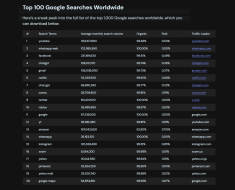
With its new model GPT-4 Turbo, OpenAI continues to pave the way for AI-powered possibilities.
On Monday at OpenAI’s very first developer conference, CEO Sam Altman announced the release of the new model. It has a context window of 128,000 tokens, meaning it can process around 300 pages of text in a single prompt and incorporates vision, text-to-speech, and DALL-E 3. Plus, it’s about a third cheaper than GPT-4.
Even if you’re not a developer directly using the API, you can experience the improvements right away through ChatGPT and a new way of creating custom GPTs without coding knowledge. Here’s what to know about GPT-4 Turbo and how to access it.
GPT-4 Turbo on ChatGPT
With the superpowered large language model, ChatGPT will be more accurate and useful. First of all, the cutoff date for ChatGPT’s knowledge has finally been updated to April 2023. Next, OpenAI has done away with the option to toggle between different models — GPT 3.5, GPT 4, internet browsing, plugins, and DALL-E 3 — and will automatically detect what to use based on the purpose of your prompt, so the interface is simpler and more intuitive. These updates are available to ChatGPT Plus users.
OpenAI also announced a new initiative called Copyright Shield. For ChatGPT Enterprise and the developer platform, OpenAI will defend its customers and pay the costs incurred if they face any copyright infringement claims.
The knowledge cutoff date, elimination of the model picker tool, and Copyright Shield are all live today.
Custom GPTs
Nudging closer to its dream of AGI (artificial general intelligence), OpenAI launched a platform for users to develop their own custom versions of ChatGPT. If that sounds vaguely familiar, that’s because it’s an evolved version of ChatGPT plugins, but now with more capabilities.
Users can experiment with pre-existing custom GPTs like ones for creating your own designs on Canva or automating tasks with Zapier, or they can create their own chatbot without any coding knowledge. GPTs are designed to understand natural language, so all you need is an idea and some instructions to build your very own AI agent.
Later this month, OpenAI will launch a GPT Store, so users can create and browse custom GPTs, much like an app store. So yes, you’ll also be able to make money off your GPT.
ChatGPT Plus and Enterprise users can access example GPTs today, with access expanding to more users eventually.




